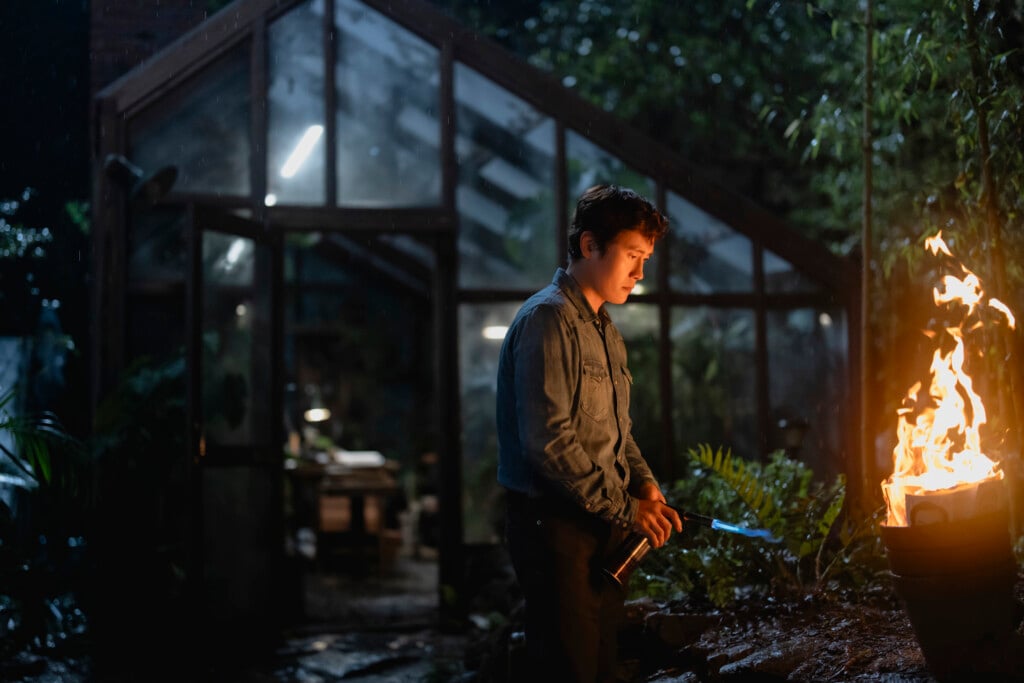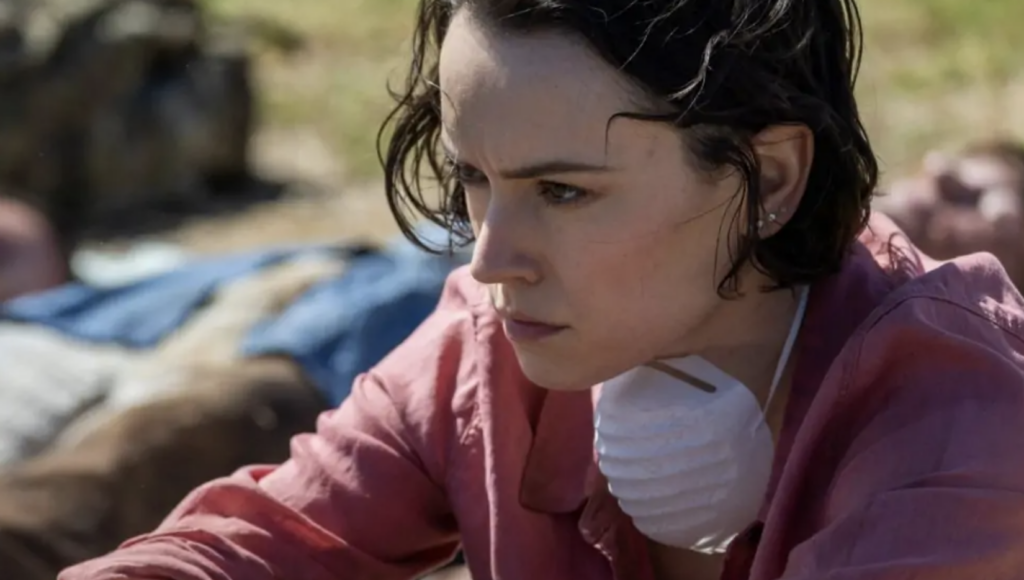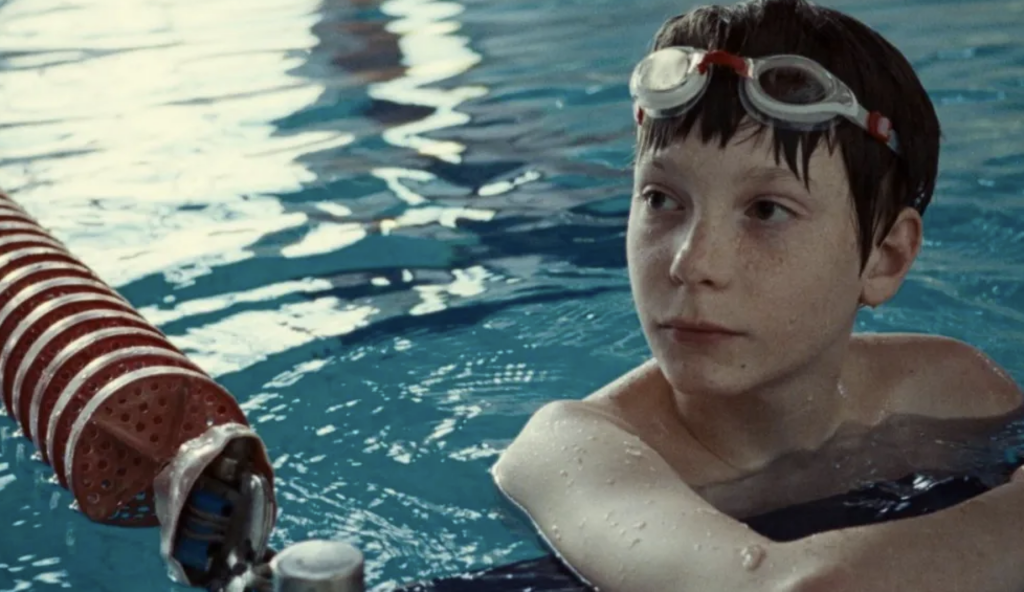Death on the Nile is dead on arrival
Kenneth Branagh’s latest Poirot adventure continues the saga nobody asked for, with a cast nobody wants to suffer.

Simon Doyle (Armie Hammer) and Linnet Ridgeway (Gal Gadot) are a picture-perfect couple on a honeymoon voyage down the Nile River which is tragically cut short. // Photo by Rob Youngson, Twentieth Century Fox Film Corporation
Time has not been kind to Kenneth Branagh’s Hercule Poirot adaptations. Murder on the Orient Express, released in 2017, was a relatively straightforward adaptation of Agatha Christie’s classic novel, successful enough that it greenlit this follow-up, originally slated for release in 2019. Death on the Nile ended up being delayed and then rescheduled due to COVID-19 so many times that we’re only finally getting it now.
Much happened in the interim to make Death on the Nile less attractive than it might have been had it come out on time.
Armie Hammer’s reputation was reduced to dust by a series of sexual assault allegations. Letitia Wright went through a social media meltdown over vaccine skepticism. Gal Gadot’s inconclusive views on the Israel/Palestine conflict significantly reduced her appeal.

Emma Mackey as Jacqueline De Bellefort and Gal Gadot as Linnet Ridgeway. // Photo by Rob Youngson, Twentieth Century Fox Film Corporation.
The biggest threat to Death on the Nile’s success doesn’t come from its issue-prone cast. Its death blow is the existence of filmmaker Rian Johnson.
In 2019, Johnson’s Christie-inspired Knives Out presented the perfect blueprint for a contemporary whodunit. Its intelligent writing, quirky performances, and biting humor balanced perfectly with its thematic substance. Daniel Craig’s ridiculous-but-self-aware detective Benoit Blanc took Branagh’s tonally unbalanced Poirot to the cleaners.
It’s difficult to watch Death on the Nile without wishing you were in Johnson’s hands instead.
Murder on the Orient Express is a more serious Poirot story to be sure. Death on the Nile, a glamourous murder mystery set in a sun-drenched exotic locale, is markedly less so.
Unfortunately, Branagh and returning screenwriter Michael Green choose to double down on the self-righteous drama here, to deadening effect.
The film starts with a flashback sequence addressing Poirot’s origins (Branagh seems weirdly invested in treating these movies like a beloved franchise, despite the fact that nobody watching feels that way). A de-aged Branagh pops up on the WWI battlefield and uses his powers of observation to help his platoon successfully carry out an attack, only to be horribly maimed when his captain steps on a landmine. Poirot has extensive facial scars, see, that’s why he has a mustache. I know you were wondering. I certainly was. Hm.
We catch up with Poirot post-Orient Express at a swanky nightclub where he witnesses the meetup of heiress Linnet Ridgeway (Gadot) and her friend Jacqueline de Bellefort (Emma Mackey). Jacqueline introduces Linnet to her new fiance, Simon Doyle (Hammer). The sensual blues music of the club’s Rosetta Tharpe-esque singer Salome Otterbourne (Sophie Okonedo) suggests Jacqueline and Simon won’t be engaged much longer.
Six weeks later, Poirot is on a vacation in Egypt when he runs into his old pal Bouc (Tom Bateman, returning from Orient Express). Bouc conscripts Poirot to join him and his mother (Annette Bening) on a pleasure-cruise wedding party for—surprise!—newlyweds Simon and Linnet. Shortly after an unwelcome Jacqueline gate-crashes the festivities, bodies start piling up, and everyone’s got a motive.
Good thing someone invited a private detective.
Branagh doesn’t seem to know what kind of film he’d like this to be.
We get occasional charming glimpses of a fussy, socially awkward Poirot. Other elements of the film are darkly funny, or—in the case of former comedy duo Dawn French and Jennifer Saunders playing a pair of rich gossips—genuinely diverting. These are, unfortunately, often plastered over by dramatic weight and pathos that takes away from the fun of the setting.
Branagh also seems to have a constant concern that the film isn’t exciting enough. His frequent use of b-roll punctuated by loud, nature-based violence seems designed to shock viewers awake in case they’ve accidentally fallen asleep. He doesn’t trust the cast, Haris Zambarloukos’ stylish cinematography, or Patrick Doyle’s remarkable score to carry things along.
It all amounts to a leaden movie that’s surprisingly serious for not having much on its mind.
Next to notable examples of movies that can pull off a mixture of playfulness and drama, with the addition of timely social commentary, Death on the Nile looks positively leaden and lazy. It holds together structurally, and looks quite pretty, but there’s not much else to recommend it.
Here’s hoping Johnson’s boat-based Knives Out sequel makes up for Branagh’s shortcomings, when it’s out later this year.




